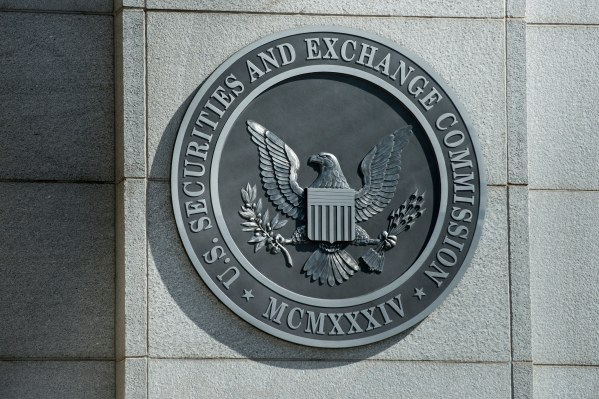As the U.S. Securities and Exchange Commission continues to scrutinize the crypto industry, the agency’s director of enforcement, Gurbir Grewal, says the regulator is more concerned with securities being sold in a format that adheres to existing laws rather than with labels or technology.
During an interview at an event hosted by Rutgers Law School and law firm Lowenstein Sandler last Friday, Grewal said the SEC is “concerned with the offerings” in crypto markets.
“When we look underneath the hood, when we kick the tires, we’ve seen plenty of DeFi products [and] DeFi offerings that are neither decentralized nor finance, but rather just straight fraud,” Grewal said. “We’ve seen plenty of stablecoins that are neither stable nor coins, but [are] fraudulent.”
The director of enforcement also highlighted that crypto products and services like protocols and smart contracts are supposed to protect against market manipulation and fraud, but haven’t. “You can call it crypto…it doesn’t matter what you call it. It’s the substance and reality of what you’re offering. And if that offering needs to be registered and you’re not registering it, we’ll hold you accountable,” he said.
Earlier this month, the SEC charged the two largest crypto exchanges, Binance and Coinbase, with securities law violations in back-to-back cases, as well as with other charges.
Grewal said the agency prosecuted the exchanges because it has “to be thoughtful in the cases we bring that will have the most impact and deter other bad actors [while] promoting compliance.”
More broadly, he considers the risks in the crypto market to be “too great, as we’re seeing a precipitous decline in the crypto markets, and investors are being hurt on the back end of it.”
While many people in the crypto industry have referred to the actions as “regulation by enforcement,” Grewal doesn’t feel so. “It’s a catchy but tired refrain. What we’re doing is enforcing existing rules and regulations.”
Many companies in the web3 space disagree.
Coinbase’s CEO Brian Armstrong recently said in a CNN interview that his company tried to engage with the SEC but had been “met with silence.” He said, “We never got any feedback from them, never found a path to register.”
The crypto industry has often argued loudly that there aren’t clear guidelines and frameworks from agencies like the SEC. However, the regulators are providing some clarity by considering some cryptocurrencies as securities because they’re used as investment vehicles. The industry may not like it, but through its actions, the SEC has provided clear and direct rules regarding those tokens.
The real issue is not that people don’t know what the rules are. They don’t like the results when you apply those rules to their projects. Gurbir Grewal, Director, Division of Enforcement, SEC
Armstrong believes that there is an opportunity for “clear regulation” for crypto in the U.S. through Congress. “We’ve already seen Europe pass comprehensive legislation, the U.K. is moving there, Singapore is moving there, Hong Kong. Basically, the U.S. is falling behind,” he told CNN.
In May, the European Union adopted the Markets in Crypto Act, or MiCA, which will impose a number of regulations on crypto platforms, token issuers and traders in an effort to reduce risk in the space. The act doesn’t cover NFTs or crypto assets already deemed financial instruments under existing laws.
“We’ll get clarity one way or the other,” Armstrong said in the interview. But the route for more clarity in the U.S. may be through courts, he added.
Grewal, however, seems to feel the SEC and the path it is charting is enough. He said at the event last week that the regulator has one set of rules that apply to all market participants, and its framework is not different for crypto market participants.
“There’s a lot of clarity out there,” he said. “What I’m seeing from my role is that the real issue is not that people don’t know what the rules are. They don’t like the results when you apply those rules to their projects.”
Grewal’s stance is similar to SEC chair Gary Gensler’s, who believes that compliance will build trust.
“We have been very active not just over the last two weeks, but over the last two years, covering the entire securities waterfall,” Grewal said. The SEC covers $100 trillion in capital markets, including the stock market, bond markets and of course, the crypto market, he noted.
In the past fiscal year, the agency has brought more enforcement actions than the prior fiscal year, with over $6 billion in penalties and disgorgement — a record high, he added. “Nothing has changed at enforcement.”
As we’ve seen over the last few months, the SEC is making its stance on the crypto space clear, regardless of how the industry responds. In the coming months and years, we could see greater tension between regulators, who crack down on the space, and crypto players, who want new rules for their industry.
Hopefully it won’t be long until legislation charts the path for U.S. crypto companies, projects and builders to cultivate a thriving industry.
